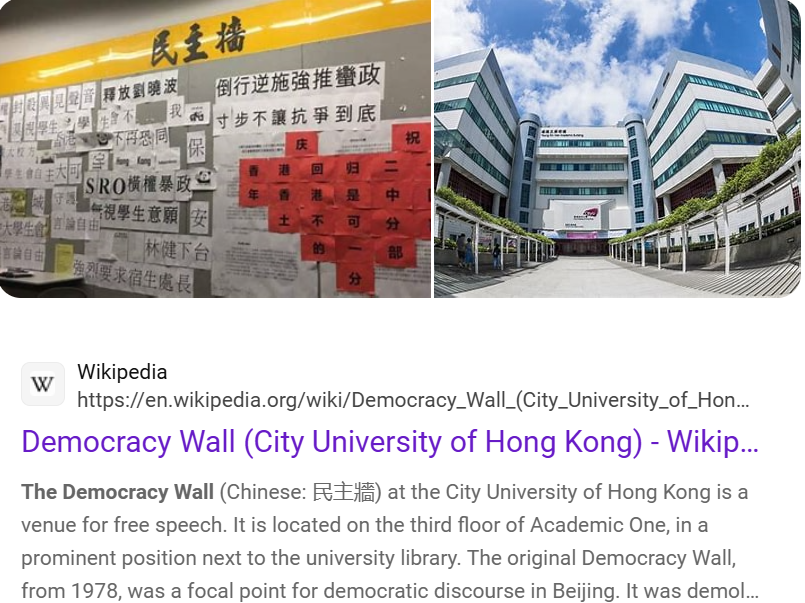Author:
In my life, I experienced many times of relocation, one of which is from my hometown to Hong Kong for studying my first master degree. This is definitely a culturally responsive journey to reshape my mindset and influence my value of life.
I was born in a big city, Wuhan, which is located at the middle part of mainland China. From the very young age, I was taught to obey rules and respect teachers. As a good boy, I should obey rules of parents and should also obey rules of teachers. It seems that for students, teachers holds the supreme authority, and students are expected to obey the teacher completely, without arguing or opposing their opinions. From this moment, this cognition lasted until my college days. Therefore, during my more than ten years of study, teachers have always existed as gods. In school, what teachers say is our code of conduct. Sometimes, knowing that the teacher is wrong, we dare not stand up and point out that the teacher is wrong in front of the whole class. At the same time, I never supposed that this phenomenon has any problems or mistakes which need to be changed.
After being a good boy for more than 10 years, I got a chance to study in City University of Hong Kong. After I started my master’s study in the university, a democratic wall of this university completely changed my attitude. Democracy wall is a blank wall outside the library, and it symbolizes democracy and freedom, where students can share any dissatisfaction with the school management or teachers. For instance, one time, some students posted on many photos, on which our vice principle who got married is holding a strange woman’s hand. Actually, these photos caused an big disturbance on campus. With the spread of this message, to avoid the potential reputation risk, the school committee immediately launched a special team to investigate the whole thing. After 3 days, the result is that the president was expelled.
After this experience, I began to change my study mode from teacher-centered to self-centered. And I began to call my teachers’ name directly since I attempt to set up an equal relationship with teachers, saying like that my academic study is like a project in which teachers and I are coworkers and team mates. In this case, if there are some difficulties for me to finish the project, I should go to my team members for help. As the result of that, I became more actively and voluntarily to learn and study, which means that I dont just follow up and rely on teachers’ teaching plan anymore. In this case, I have become a more independent learner, a fact that exactly enhanced my study efficiency and academic performance.
To sum up, my transformation of mindset and cognition can best exemplify a statement that culturally responsive teaching requires an understanding of the social, political, and historical contexts that shape the learning environment (Howe, Johnson & Te Momo, 2021). Therefore, there is no denying that if I cant change my mind to adapt to a new local academic environment in Hong Kong, my learning journey there will be hard.
References
Howe, E.R., Johnson, S., & Te Momo, F. (2021). Effective indigenization of curriculum in Canada and New Zealand: Towards culturally responsive pedagogies. Journal of Indigenous Education, 16(1).

I have had a similar experience with you. Collectivist education in China has caused everyone to lose their individuality. From childhood to adulthood, we wore uniform uniforms, carried the same school bags, and even tended to have the same way of thinking. This mode of education leads us to be afraid to express our thoughts, and over time we even lose the ability to think independently. At school, we didn’t dare to question our teachers, let alone challenge authority.
I distinctly remember an incident that happened in the fifth grade of elementary school. Since my hometown is very small, my Chinese teacher thinks**”As long as it rains, it will rain in the whole city.” But I’ve been to Beijing and know that the weather may not be the same in different regions. So, in my composition, I expressed this point. However, my teacher criticized me and thought that my idea was wrong. At the time, I didn’t have the courage to defend myself. This experience made me realize that my generation lacked the ability and courage to think critically.
It wasn’t until I came to Canada that I slowly developed critical thinking. Here, rightly or wrongly, everyone is free to express their ideas. A culturally diverse environment allows different perspectives to be respected, and people are encouraged to question and explore, rather than follow them blindly. This way of education made me realize that true learning is not only about receiving knowledge, but more importantly, about learning to think, analyze and judge.
Dear Leo,
I would like to say thanks to you for your reflection and experience. As a student who has lived in Chinese mainland more than 20 years, I know exactly how Chinese culture influence Chinese students’ thoughts. At the same time, I also have similar experience like yours, and it gave me so much terrible memories that I do not want to recall. Even now, it still has a huge influence on me, although I try very hard to get rid of and forget them. I also want to say that we are the lucky students in a way, baceuse we both have experiences about studying outside mainland China. I hope we all could have a brilliant and splendid future wherever we are.
Best,
This blog brought up an excellent discussion point at how the hidden curriculum can influence students’ thoughts and opinions. Culturally relevant curriculum includes allowing students to have different opinions and viewpoints to make room for critical and creative thinking.